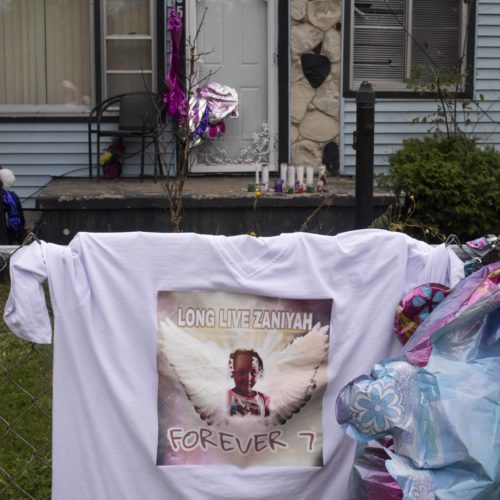Introduction
We’re continuing our series featuring journalists who have written powerful stories. This week, we spoke to Flint Beat founder, publisher and reporter Jiquanda Johnson — a triple threat! — about covering gun violence in her hometown.
Johnson is from the Flint, Mich., area and was overwhelmed by stories about the identity of the latest shooting victim and bombarded by pictures of suspects. That’s why she decided, instead, to focus her reporting on solutions to the problem. One promising idea that she featured: Violence Interrupters, who mediate neighborhood conflicts and work with those at risk of being either perpetrators or victims.
How did you get the story? What led you to pursue it?
In Flint, both the victim and assailant are likely to be young, black and male. It’s an ongoing issue that is plaguing cities like Flint, Detroit and Chicago. I know that gun violence is an obvious public health issue in the community I grew up in. But what we were missing was solutions that led to us working on solutions journalism stories to provide a holistic approach to storytelling in Flint.
What were the challenges of reporting and how did you navigate them?
The biggest challenge was gaining support for something so abhorrent to the Flint community. We were used to stories being told one way. We still haven’t quite managed to convince some community members, including law enforcement officials, that this is not about whether they are doing their jobs, it’s about what other communities or what our city is doing to decrease violent crimes in their neighborhoods and looking at those strategies to see if they could be viable solutions for Flint.
We kicked off with myself, an intern and my friend Mark Felix, who is a photojournalist. It wasn’t easy, but the three of us managed to introduce solutions journalism to the Flint community, and I am working to expand that.
The takeaway: Good journalism goes beyond pointing out problems. It offers solutions.
Read more in Inside Public Integrity
Watchdog Q&A
Q&A: Will Carless on how big grocery chains were partly to blame for their workers’ deaths
Inside Public Integrity
Center for Public Integrity earns perfect score as trusted news site
Media watchdog NewsGuard notes that our nonprofit newsroom investigates ‘all sides of the political spectrum’


Join the conversation
Show Comments